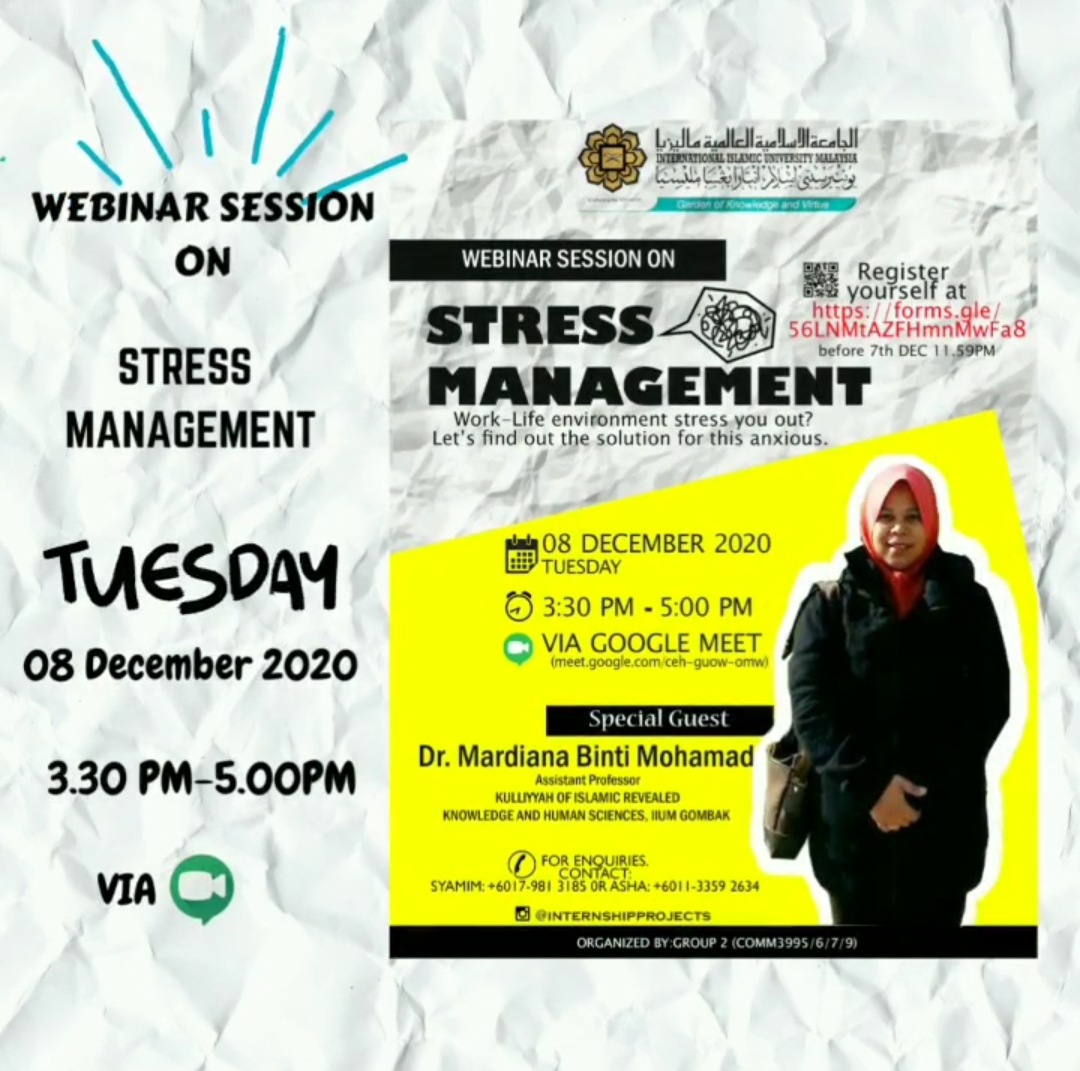By Aini Nabilah Sharipuddin
GOMBAK, 15 December 2020: Stress is a normal aspect faced by individuals in everyday living where it could come from the environment causing our thoughts and emotions to be constantly affected.
Dr. Mardiana Mohamad, a lecturer from the Department of Psychology, Kulliyyah of Islamic Revealed Knowledge and Human Sciences, presented that stress is an adaptive response that comes from human body.
She claimed that œstress is an unavoidable reality of life which holds the signs in order to inform humans that their bodies need to stop and rest from doing something.
This is because sometimes humans do not prioritise and are not aware of their body’s conditions as they are too obsessed and engrossed in their daily matters.
“If our physiological (the way in which the bodies of living things work like hormones) changes occurred such as mouth dryness, shaking/trembling, dizziness, difficulty breathing, low stamina, craving for something sweets or chronic fatigue, humans should recognise that they are tired inside,” Dr. Mardiana said.
She noted that the signs of œfeeling extreme nervous, difficult to concentrate, forgetful, restlessness and anxiety acknowledged that stress right now has taken place in human status or condition.
œHence, humans will encounter difficulty in sleeping, weak cardiovascular and immune systems, heart attack risk and cell damage that accelerates the ageing process in humans.
œIt creates the strained relationship and engagement with other people as it becomes barrier for humans to communicate effectively, Dr. Mardiana said.
According to Dr. Mardiana, the solutions on coping with stress are needed to eliminate the stressors by practising appropriate exercise, taking sufficient rest, maintaining a healthy diet, building support connections and applying relaxation techniques.
This helps humans to stay relaxed and calm when they are faced with the issues that bring anxiety or negative thinking to be haunted in themselves.
She reminded the audience to always practise muhasabah as it leads them to be able to identify the causes or factors of their stress emergence.
Organised by Communication Internship Class, the webinar was attended by about 60 participants involving students and lecturers.***
